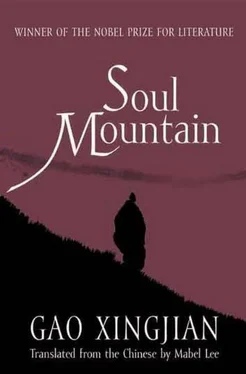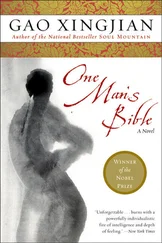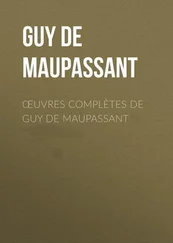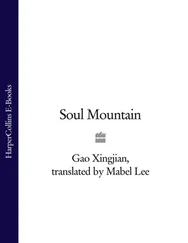These events of 1983 form the autobiographical substance of Soul Mountain , the story of one man’s quest for inner peace and freedom. Gao Xingjian’s brush with death had dislodged many forgotten fragments of his past and he recaptures these as well as his emotional experience of confronting death in Soul Mountain . Keeping his whereabouts secret, his travels take him to the Qiang, Miao and the Yi districts located on the fringes of Han Chinese civilization and he considers their traditions and practices with the curiosity of an archaeologist, historian and writer. His excursions into several nature reserves allow him to ponder the individual’s place in nature; and his visits to Buddhist and Daoist institutions confirm that these are not places for him. Although he admires the forest ranger living the life of a virtual recluse and the solitary Buddhist monk-cum-itinerant doctor, he realizes that he still craves the warmth of human society, despite its anxieties. For the author, who has an obsessive need for self-expression, Soul Mountain poses the question: when deprived of human communication, will not the individual be condemned to the existence of the Wild Man in the forests of Shennongjia, the Big Foot of America or the Yeti of the Himalayas?
The autobiographical dimensions of Soul Mountain are richly overlaid with an exploration of various forms of human relationships and their implications for the individual. A rigorous and critical analysis of the self of one man is achieved by dissecting the authorial self into the singular pronouns, “I”, “you”, “she” and “he”, who together constitute the composite protagonist. On his solitary journey, the protagonist seeks to alleviate his acute loneliness and creates “you” so that he will have someone to talk to. The “you”, who is a reflection of “I”, naturally experiences the same loneliness and creates “she” for companionship. The creation of an unnamed “she” allows the author to project himself with immense freedom into the psyche of women. The lengthy journey draws the “you” and the “I” too closely together and reduces the analytical distance sought by the author, so he allows “you” to walk away, and the back of “you” walking away becomes “he”… and there are yet further changes.
The author, on his long journey as a political refugee from Beijing, employs the strategy of storytelling to disperse his loneliness, and at the same time reconstructs his personal past as well the impact of the Cultural Revolution on both the human and physical ecology of China. Through the characters who are projections of his self, the author engages in intimate conversations with anonymous others to tell the stories of many different types of people who populate China, but yet who in the final analysis can be found in all societies and cultures.
Gao Xingjian is a writer with an artist’s sensitivity and an intense and continuing curiosity for experimentation with language and other expressive forms; and he is acutely aware of the challenge to the writer, and to literary genres, in the visual-image-oriented world of modern times. Through the publication of the novel Lingshan in 1990, he has exorcised lingering remnants of homesickness and has succeeded in devoting himself singlemindedly to a creative life. Since 1987, full productions of his plays have been staged in Paris, Bordeaux, Avignon, Stockholm, Hamburg, New York, Taipei, Hong Kong, Vienna, Veroli, Poznan, Cluj, and have been performed in small theatres and workshops in Tokyo, Kobe, Edinburgh, Sydney, and Bénin. However, since 1987, his only publication in China has been Taowang (Absconding), a play about three people who escape to a disused warehouse after the tanks roll into Tiananmen in the early hours of 4 June 1989. Absconding was reproduced in newspapers and magazines and criticized as a pornographic and immoral work fabricated by the writer Gao Xingjian who was not in Beijing at the time. On the other hand, the American group that had commissioned the play requested changes, insisting that the student demonstrators be portrayed as heroic figures. He declined to make any changes and withdrew the play. Living in Paris, Gao Xingjian mainly supports himself through painting the large black and white Chinese ink-paintings for which he is well known. To date he has held thirty solo exhibitions in various galleries throughout Europe, as well as Beijing (prior to 1987), New York, Taipei and Hong Kong; and his works have been collected in several galleries in Europe and America.
Most of Gao Xingjian’s recent writings have been published in Chinese in Taipei and Hong Kong. A significant number of these have also been published in French, and are now beginning to appear in English. Some of his recent plays were first written in French and then Chinese. In 1992 Gao Xingjian was honoured by the French with the title of Chevalier de l’Ordre des Arts et des Lettres. His play in French Le Somnambule won the Prix Communauté français de Belgique in 1994, and his novel La Montagne de l’âme was awarded the Prix du Nouvel An chinois by a French panel of judges in 1997. In early 2000, a second edition of La Montagne de l’âme went into print simultaneously with the French version of his second novel, Yige ren de shengjing which was published last year in Taipei. Noël and Liliane Dutrait’s French version is called Le Livre de seul homme , my English version will be called One Man’s Bible .
Mabel Lee, April, 2000
Mabel Lee was born Mabel Hunt in Warialda, northern New South Wales, and attended Parramatta High School. A graduate of the University of Sydney (BA with First Class Honours and PhD), she was a member of the academic staff of her alma mater from 1966 until January 2000. She is co-editor of the University of Sydney East Asian Series which publishes the work of Australian scholars on Asia, and the University of Sydney World Literature Series which sees literature as an activity that is shared by all peoples of the world. Mabel Lee retains a close association with the University of Sydney as Honorary Associate Professor in Chinese Studies.
The old bus is a city reject. After shaking in it for twelve hours on the potholed highway since early morning, you arrive in this mountain county town in the South.
In the bus station, which is littered with ice-block wrappers and sugar cane scraps, you stand with your backpack and a bag and look around for a while. People are getting off the bus or walking past, men humping sacks and women carrying babies. A crowd of youths, unhampered by sacks or baskets, have their hands free. They take sunflower seeds out of their pockets, toss them one at a time into their mouths and spit out the shells. With a loud crack the kernels are expertly eaten. To be leisurely and carefree is endemic to the place. They are locals and life has made them like this, they have been here for many generations and you wouldn’t need to go looking anywhere else for them. The earliest to leave the place travelled by river in black canopy boats and overland in hired carts, or by foot if they didn’t have the money. Of course at that time there were no buses and no bus stations. Nowadays, as long as they are still able to travel, they flock back home, even from the other side of the Pacific, arriving in cars or big air-conditioned coaches. The rich, the famous and the nothing in particular all hurry back because they are getting old. After all, who doesn’t love the home of their ancestors? They don’t intend to stay so they walk around looking relaxed, talking and laughing loudly, and effusing fondness and affection for the place. When friends meet they don’t just give a nod or a handshake in the meaningless ritual of city people, but rather they shout the person’s name or thump him on the back. Hugging is also common, but not for women. By the cement trough where the buses are washed, two young women hold hands as they chat. The women here have lovely voices and you can’t help taking a second look. The one with her back to you is wearing an indigo-print headscarf. This type of scarf, and how it’s tied, dates back many generations but is seldom seen these days. You find yourself walking towards them. The scarf is knotted under her chin and the two ends point up. She has a beautiful face. Her features are delicate, so is her slim body. You pass close by them. They have been holding hands all this time, both have red coarse hands and strong fingers. Both are probably recent brides back seeing relatives and friends, or visiting parents. Here, the word xifu means one’s own daughter-in-law and using it like rustic Northerners to refer to any young married woman will immediately incur angry abuse. On the other hand, a married woman calls her own husband laogong , yet your laogong and my laogong are both used. People here speak with a unique intonation even though they are descendants of the same legendary emperor and are of the same culture and race.
Читать дальше
Конец ознакомительного отрывка
Купить книгу












